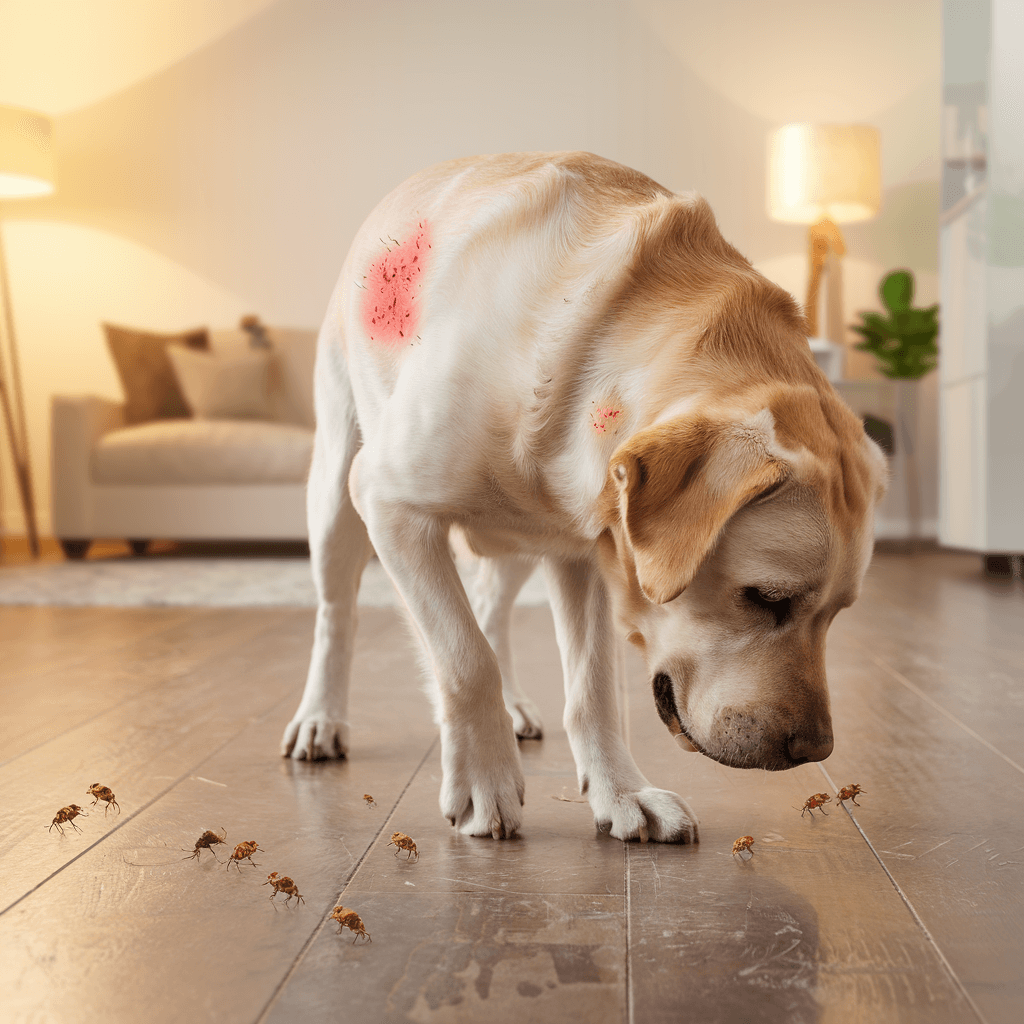Will Bed Bugs Bite Cats or Dogs?
Learn how bed bugs affect pets like cats and dogs, their risks, and how to protect your furry companions with effective prevention and treatment strategies
DRZ
12/10/20244 min read


As pet owners, we go above and beyond to ensure the health, safety, and happiness of our furry companions. However, when the topic of bed bugs comes up, many of us may wonder: Are our pets at risk? Bed bugs, notorious for causing itchy and uncomfortable bites in humans, are a growing concern for households around the globe. But how do these pests affect our pets, and what can we do to protect them?
This article will dive into the relationship between bed bugs and pets, focusing on their behavior, potential risks, and strategies to keep your beloved animals safe and comfortable.
Do Bed Bugs Bite Pets Like Cats and Dogs?
Yes, bed bugs can bite pets, including cats and dogs, though they prefer humans as their primary hosts. Bed bugs are attracted to warmth, carbon dioxide, and the scent of a blood meal. While they don’t live on pets like fleas or ticks, they may bite animals if their preferred food source—humans—is unavailable.
That said, bed bugs are opportunistic feeders. If your pet sleeps close to you or in an area where bed bugs are hiding, they may fall victim to bites. While the bites may cause mild irritation, bed bugs are not known to transmit diseases to pets or humans.
Are Bed Bugs Dangerous to Pets?
Bed bugs are not typically considered dangerous to pets, but their bites can cause discomfort, irritation, and, in some cases, allergic reactions. Here are a few ways bed bugs may impact your pets:
Skin Irritation: Bed bug bites can result in itchy red welts on your pet’s skin, especially in areas with thinner fur, such as the ears, neck, and belly.
Allergic Reactions: Some pets may develop an allergic response to bed bug bites, leading to swelling, hives, or excessive scratching.
Stress: An infestation can cause stress for your pet, especially if they are frequently bitten or if their environment is disrupted during treatment efforts.
While the threat is relatively low compared to fleas or ticks, addressing a bed bug infestation promptly will ensure the well-being of your entire household, including your pets.
Can Pets Carry Bed Bugs?
Unlike fleas and ticks, bed bugs are not parasitic creatures that live on their hosts. Instead, they prefer to hide in cracks, crevices, and other hidden spaces around sleeping areas.
However, bed bugs are excellent hitchhikers and may cling to your pet’s fur, bedding, or even their carriers. While this is rare, it’s a potential way for bed bugs to spread from one location to another.
To minimize the risk of transporting bed bugs, inspect your pet’s belongings after travel, grooming visits, or overnight stays in unfamiliar environments.
Protecting Your Pets from Bed Bugs
Bed bugs typically do not live on pets, but their bites can still affect your furry companions. Here are steps you can take to protect your pets and home from bed bugs:
Maintain a Clean Environment
Wash pet bedding, toys, and carriers regularly in hot water and dry them on high heat.
Vacuum your home frequently, paying close attention to areas where your pet sleeps.
Inspect Travel Items
When traveling with your pet, inspect their bedding, crates, and carriers for signs of bed bugs before returning home.
Keep pet items off the floor and away from beds or upholstered furniture.
Quarantine Items
After returning from a trip, leave luggage, pet carriers, and bedding in a hot car or freezing area for 1–2 weeks to kill any hitchhiking bed bugs.
Launder these items immediately upon returning home.
Use Bed Bug-Proof Covers
Invest in encasements for mattresses and box springs to limit bed bugs’ hiding spots and prevent them from feeding.
Monitor Your Home
Periodically check sleeping areas, furniture, and pet belongings for signs of bed bugs, such as live insects, shed skins, or small bloodstains.
Can Anti-Flea and Anti-Tick Products Repel Bed Bugs?
While anti-flea and anti-tick products are highly effective for controlling those specific pests, they are not designed to combat bed bugs. Bed bugs are different in behavior and biology, so these products won’t deter or kill them.
If you’re dealing with a bed bug infestation, the best course of action is to focus on eliminating the pests from your home through professional treatment or DIY methods.
What Role Do Pets Play in the Spread of Bed Bugs?
Pets are unlikely to play a significant role in spreading bed bugs. These pests are more commonly transported via:
Luggage and backpacks
Clothing and shoes
Second-hand furniture and bedding
Bed bugs may hitch a ride on your pet’s fur or belongings, but they don’t reside on animals or in outdoor environments like fleas or ticks. Instead, they seek dark, hidden spaces near sleeping areas.
How to Prevent Bed Bug Bites on Your Pet
The most effective way to prevent bed bugs from biting your pet is to eliminate the infestation from your home. Here’s how:
Call a Professional
Bed bugs can be challenging to eliminate without expert help. Professional pest control services use heat treatment, chemical treatments, or a combination of methods to eradicate infestations effectively.
Use Preventive Measures
Keep your home clutter-free to reduce hiding spots for bed bugs.
Inspect second-hand furniture and items for signs of bed bugs before bringing them into your home.
Ensure a Bed Bug-Free Home
Once the infestation is eradicated, continue to monitor your home to ensure bed bugs don’t return. Use interceptors on bed legs and maintain a clean environment.
Final Words:
Bed bugs are opportunistic feeders that will bite pets if no other hosts are available. However, they are more likely to target humans due to the ease of access. While bed bugs don’t live on pets like fleas or ticks, their bites can still cause discomfort and stress for your furry companions.
By addressing infestations promptly, practicing good hygiene, and taking preventive measures, you can protect your pets and home from bed bugs. Remember, professional pest control is often the most reliable way to eliminate these pests and ensure a safe, comfortable environment for your entire family—humans and animals alike.
Call 1-888-394-0227 (Toll Free)
Speak to a Pest Control Professional in Your Area
